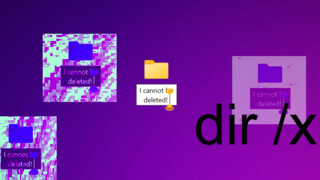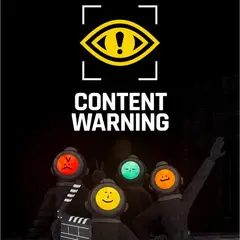You are traversing through one web site to another to satisfy your need to know about a thing you wonder. Then suddenly the site you are on shows you a pop up which you instinctively click on the “X” mark on the corner. And doing that leads you to another site of an unwanted product. This result you just had is because of the “Dark Patterns” that are used by corporations.
Digital format designs that aiming to trick you to benefit corporations are called dark patterns. These are being used deliberately and come in a variety.
In this article of ours, we tried to mention some of them for you to be alert.
Baiting you to click on a link
You might have old hardware, and therefore you might need to search for the driver of it online. If it’s a sound driver for the motherboard, probably there are a couple of different drivers out there, which are made by different companies. And not all of them are in on those known sites.
As you enter the site, even though the modest looking download button on the bottom is what you are wanted, it might trick you to click on that big glowing green “DOWNLOAD” button. And with that, it will be directing you to a so-called “driver installer” downloading site.
This is a common way of sites for getting visitors to click on the ad and download the program to get enough clicks so they can get money from the ad giver.
By the way, I had a driver installer that I never used for months. One day I thought, I should give it a try. It updated my video driver, after that, I couldn’t play games on my computer and even couldn’t adjust my screen resolution. So that is an experience I had.
They think you won't read
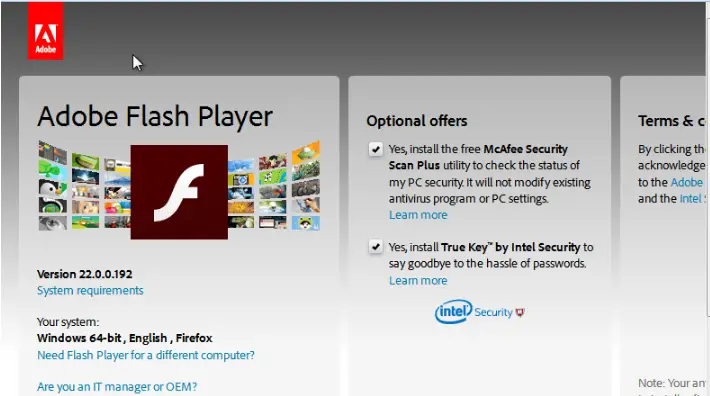
When you just want to install a program that you feel like a necessity for your general use, you click on “next” over and over without looking too much into it. Then you notice you have installed a browser you didn’t need or a security program you “really” do not need.
This happens a lot and almost every time in this the case. Because of the consumers’ instinctive nature, the corporations take this route to simply trick you into having the “bonus” benefits by installing what you really needed.
And if it’s a security program like “McAfee”… well, good luck on deleting that.
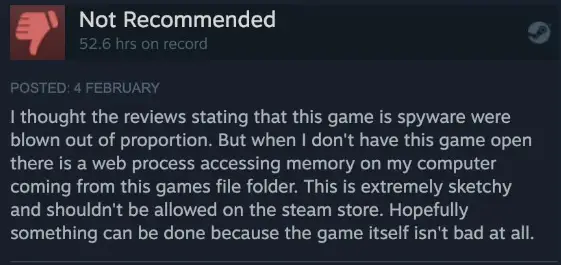
As another example; Firaxis, the developer company of the Sid Meier’s Civilization VI, has gone to a change in the game’s EULA. They put in a statement which goes as “The information we collect may include personal information such as your first and/or last name, e-mail address, phone number, photo, mailing address, geolocation, or payment information. In addition, we may collect your age, gender, date of birth, zip code, hardware configuration, console ID, software products played, survey data, purchases, IP address and the systems you have played on. We may combine the information with your personal information and across other computers or devices that you may use.”
But this effort of them didn’t go unnoticed and created a huge backlash in the gaming community, resulting in game refunds and negative reviews and obvious loss of trust.
Shame on you for not signing for our newsletter!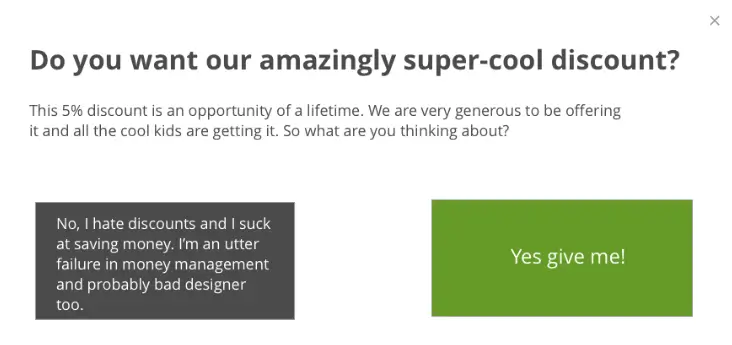
This is probably by far the cheekiest way of trying to trick you into getting what they want from you. They try to make you feel bad about yourself for not accepting what they throw at you, whether if it’s a discount or a newsletter subscription. And this is called “confirm shaming”, which it tries to create insecurity about yourself so you can accept their offer to become “secure, strong and smart”.
It is more like trying to trick you by “Stockholm Syndrome” if you ask me. You know, trying to make you fall for your captors or at least accepting their non-logical terms.


